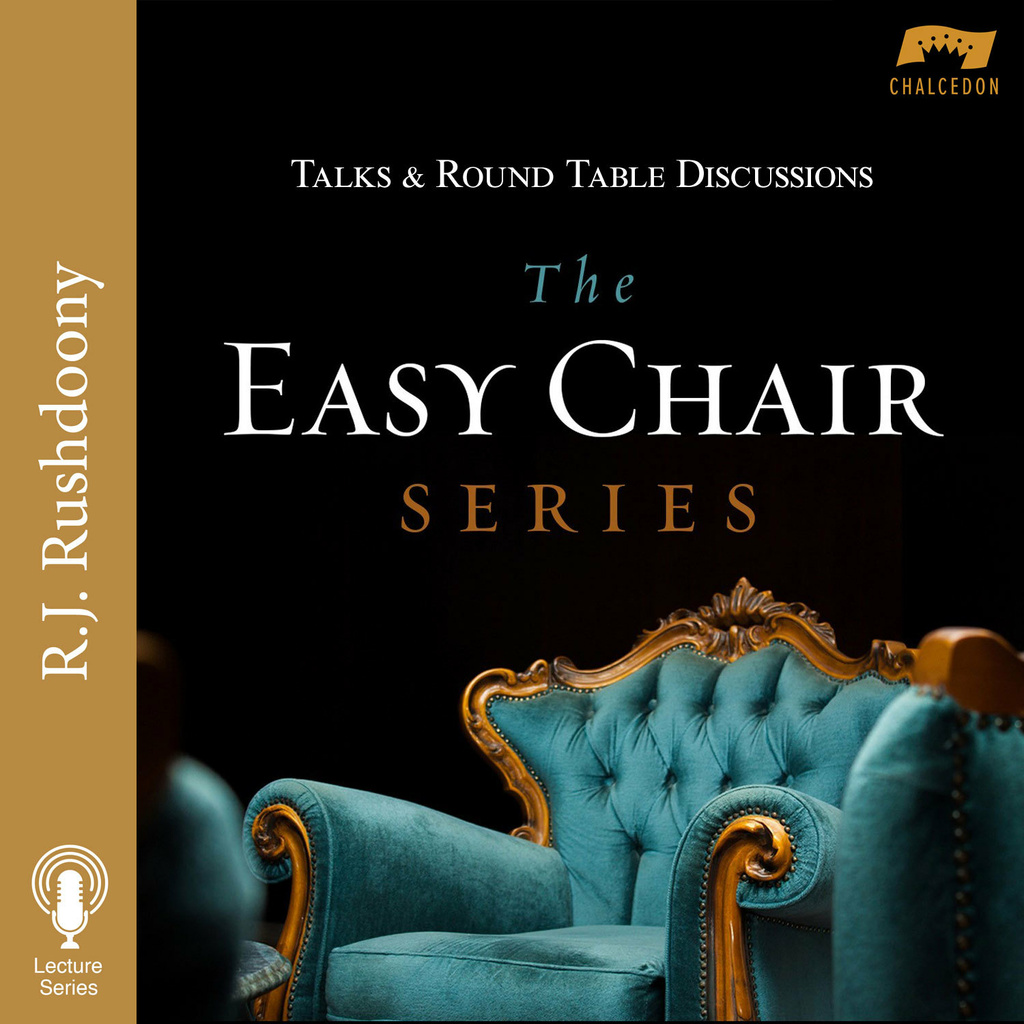
288. The New Paganism
The new Paganism begins with a premise that there is no good nor evil, that there is no authority of any kind, that every man is his own god, that every man can do as he pleases and the state should simply guarantee him the freedom to do that. The new Paganism, for example, is militantly against any restriction upon the natural, unconverted man. Every kind of behavior he wants to practice should be acceptable.


- R. J. Rushdoony ,
- Mark R. Rushdoony ,
- Otto Scott ,
- Douglas Murray
EC288: The new Paganism begins with a premise that there is no good nor evil, that there is no authority of any kind, that every man is his own god, that every man can do as he pleases and the state should simply guarantee him the freedom to do that. The new Paganism, for example, is militantly against any restriction upon the natural, unconverted man. Every kind of behavior he wants to practice should be acceptable.

- R. J. Rushdoony
Rev. R.J. Rushdoony (1916–2001), was a leading theologian, church/state expert, and author of numerous works on the application of Biblical law to society. He started the Chalcedon Foundation in 1965. His Institutes of Biblical Law (1973) began the contemporary theonomy movement which posits the validity of Biblical law as God’s standard of obedience for all. He therefore saw God’s law as the basis of the modern Christian response to the cultural decline, one he attributed to the church’s false view of God’s law being opposed to His grace. This broad Christian response he described as “Christian Reconstruction.” He is credited with igniting the modern Christian school and homeschooling movements in the mid to late 20th century. He also traveled extensively lecturing and serving as an expert witness in numerous court cases regarding religious liberty. Many ministry and educational efforts that continue today, took their philosophical and Biblical roots from his lectures and books.

- Mark R. Rushdoony
Mark R. Rushdoony graduated from Los Angeles Baptist College (now The Master’s College) with a B.A. in history in 1975 and was ordained to the ministry in 1995.
He taught junior and senior high classes in history, Bible, civics and economics at a Christian school in Virginia for three years before joining the staff of Chalcedon in 1978. He was the Director of Chalcedon Christian School for 14 years while teaching full time. He also helped tutor all of his children through high school.
In 1998, he became the President of Chalcedon and Ross House Books, and, more recently another publishing arm, Storehouse Press. Chalcedon and its subsidiaries publish many titles plus CDs, mp3s, and an extensive online archive at www.chalcedon.edu. His biography of his father will be published later this year (2024).
He has written scores of articles for Chalcedon’s publications, both the Chalcedon Report and Faith for all of Life. He was a contributing author to The Great Christian Revolution (1991). He has spoken at numerous conferences and churches in the U.S. and abroad.
Mark Rushdoony has lived in Vallecito, California, since 1978. His wife, Darlene, and he have been married since 1976. He has four married children and nine grandchildren.
- Otto Scott
Otto Scott (May 26, 1918—May 5, 2006), a former Chalcedon staffer, was a journalist, business executive, and historian. He began his newspaper career at the age of sixteen and later worked for United Features Syndicate and The San Diego Union. When WWII broke out he joined the Merchant Marine. After the war, Scott worked in the advertising industry, then became editor of a manufacturing trade journal, Rubber World. In the course of his assignments, he interviewed Paul Blazer, the chairman of Ashland Oil, in Ashland, Kentucky, and was invited to write the history of the company. He would later write corporate histories for Raytheon, Black & Decker, and Arch Mineral Corporation. After his conversion to Christianity, he focused on writing about modern history, politics, and cultural trends. In his later years, he worked for Chalcedon before publishing his own newsletter, The Compass.
- Douglas Murray